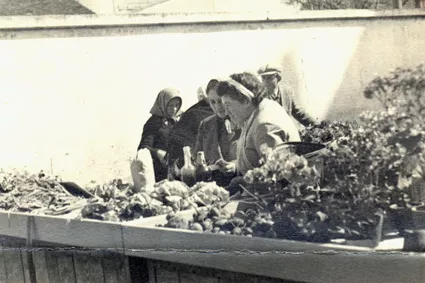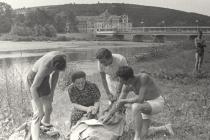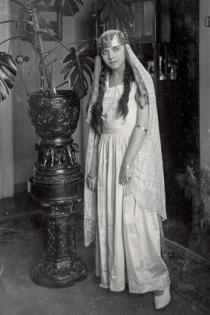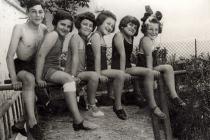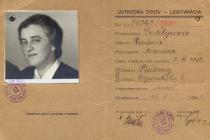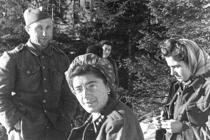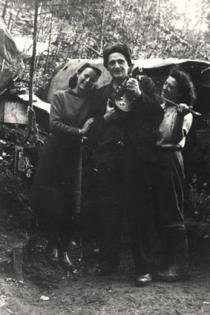After the anti-Jewish laws were issued in the Slovak State, Jews were forbidden almost everything. In order for our family to just get by, I did gardening and sold at the market. This photo is from the Piestany market, and was taken in 1941. I (Heda Ambrova) am second from the left.
In 1942, right when talk of deportations began, I got married. There was a cell of illegal workers here that helped me very much. An acquaintance of mine, who lived in the former Soviet Union, came along and said: ‘We won’t allow for Heda to be deported. Two years ago you lost a daughter. We’ll get her married for you.’ Dr. Hecht came to see me, later he was named Horal. He told me: ‘I’ll marry you, but after the war we’ll get divorced, because I’ve got a girlfriend in Prague. We’ll help each other; I was told that you’re honest people.’
He was also a Jew, it wasn’t even possible otherwise. I also had a boyfriend, a Jewish boy, who was finishing university in Prague, but couldn’t finish, because Adolf arrived. His name was Goldstein. We were married at the Piestany city hall. The official was this ‘nice’ man, and said: ‘Even so, they’ll deport you.’ My husband was polite, and said to him: ‘So we’ll go together.’ We didn’t feel much like laughing. Someone ratted on us, that we’d been formally married. Luckily, a week after the wedding they transferred my husband to Michalovce. As a good wife, I thus had to move with him. My husband was a doctor.
